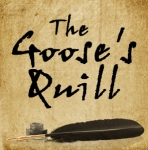Last week, I talked about changing my writing process because my current process wasn’t working well anymore. One of the changes I made was returning to longhand for some of my writing. I outlined the reasons for this last week, but the two main reasons are:
1) Longhand writing engages my creativity in a different way than typing.
2) I do not get hung up on the typed words on the page.
It’s been shown that writing longhand does engage different parts of your brain than typing on a screen. I know that the writing I produce is significantly different writing longhand vs. on screen. For me, there is something soothing about the feel of smooth paper under my hand as I write. I love the feel of the pen sinking into the paper. Watching my words appear on the page when handwriting is a creative thrill that I do not get when typing. Perhaps it is akin to artists seeing their drawing or painting come to life from their fingertips.
I know that once I type something, my brain has trouble revising it with sufficient depth. I get stuck on the words on the page. I grew up in a time prior to computers (we got our first PC when I was in high school), so I remember vividly that when you typed up your final paper on a typewriter that was it. NO CHANGES. And all of my life, those black words on a white page have signified a final printed product—a newspaper, a magazine, a book. So I wonder if I have subconsciously equated the black-on-white Times New Roman of my computer screen as somehow a “finished” product. I do not have this revision paralysis problem with longhand pages—crossouts, arrows, and numbered citations abound. It’s very freeing.
What surprised me last week was that a number of writers mentioned to me that they, too, were considering a return to longhand writing as part of their process. All of us were my age or older—in other words, we teethed our writing on pen and paper. Perhaps this indicates that our brains are wired to be more artistic when returning to our creative roots. Or that we’re all technologically exhausted and crave something simpler. Or something else—what do you think?
It also got me wondering about younger writers these days—writers who grew up on computer screens and keyboards. Would this impulse to go longhand ever arise in them? So I am asking the younger generation out there: Have you ever tried to write longhand? Did you find a difference in how and what you wrote? Would you ever consider mixing longhand writing into part of your process?
Related articles




How to Measure Growth As A Writer
Writing is art and craft. As such, many areas of writing have an unnerving subjectivity to them. Anyone who has tried to submit a manuscript to agents will confirm this—some will like it, some will not. So how do you know if you’re getting any better as a writer?
Really, the only true yardstick you can use is seeing if your writing today is stronger than your writing last year, last month, last week. Comparing yourself to others is a recipe for angst, frustration, and despair. But even you comparing yourself to yourself can be subjective—we are often blind to our own faults and judge ourselves more harshly than a stranger.
Another way is to find people you trust to give you honest feedback. Hopefully, they will be able to point out where you have grown as a writer, and where you still need work. If these are people well-schooled in craft, you can be somewhat reassured that you are moving in the right direction.
I have used the Workbook in my process for my last 3 manuscripts, and I am currently using it to improve my WIP. The first time I used this book, I remember that every exercise made me gasp, “Why didn’t I think of that?” or “Why didn’t I do that? It seems so obvious!” So the revisions that I came away with were extensive—but much needed.
This time through, however, I am finding that some of the exercises are already complete, in that I did it in this manuscript already, without prompting. There’s still a lot I need to do to up my game with this manuscript, but finding those parts I already did made me happy. It means I am incorporating the lessons from Maass (and others) into my subconscious process. Hopefully this will mean stronger first drafts, which will mean fewer revisions, which will mean faster completion times—without sacrificing quality.
So that is one objective way you can measure if you are improving your craft—if you find that the writing books you use are telling you things that you have already done.
How do you measure growth as a writer?